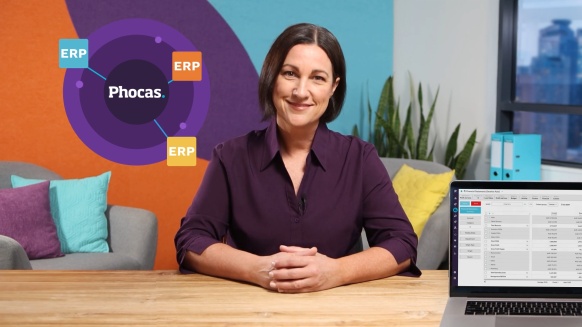How to automate financial statements in minutes

With today’s critical need for accuracy, completeness and speed in financial reporting, the finance team can’t afford to spend weeks collating reports. Your obsolete reporting software that requires finance to carry out data collection or manual data entry may be leaving your business exposed to a range of critical risks, and your finance team are left doing 'busy' administrative work. Instead, they could be adding value through knowledge sharing and analysis. It's time to add the power of a business planning and analytics platform to your financial reporting, so customization and automation follow.
The finance team within your business needs to be able to quickly and efficiently get the answers they need to help stakeholders, comply with regulatory requirements, manage budgets, and forecast financial performance.
Point solutions like Hyperion Enterprise fall well short of meeting the financial reporting needs of a modern business and Excel spreadsheets can’t streamline the reporting process. We all know Excel is used widely in accounting teams, but despite its strengths, Excel isn’t capable of handling big data processing and enabling the analysis of a whole range of data. The more a company changes or grows, the more it generates data, so having a cloud-based business planning and analysis platform that integrates with ERP systems and multiple other datasets has many benefits. Reducing the need to manage spreadsheets by putting financial data into the built-in financial reporting software will help the finance team to carry out its management reporting with strong data integrity.
For the Phocas business planning and analytics solution, all people using the analytics function can take advantage of automation tools like Phocas AI (artificial intelligence). This new AI functionality allows customers to type any questions relevant to their own business databases, helping them fast-track decision-making and problem-solving by having the natural language processing quickly derive the answer from mining the database of information in real-time.
Financial reporting automation
If you work on your business's finance team, you'll likely have a hectic workload at the month's end. For many finance professionals , the monthly static financial reporting process continues to be arduous, especially if it's still performed manually. It's a time-consuming process and relies mostly on transferring data from the ERP into spreadsheets, with lots of switching back and forth. The process is slow and error-prone because every new reconciliation affects the numbers, making the static spreadsheet-based reports instantly out-of-date, forcing the regular creation of new versions.
For many, the process of preparing the data is a huge time waster and takes a lot away from analyzing the data. A digital solution integrating with your ERP and other data sources can help the accounting department to quickly create financial statements from the templates like the Income or Profit and Loss Statement, Balance Sheet and Cashflow Statement that are customizable to match the nuances of your business or division.
Change the finance team's mindset
Without the right tools, your finance and accounting team may be struggling to collect data from multiple sources and perform the analysis required to answer questions about corporate financial performance.
Your business intelligence and reporting system must be able to deliver the following information to your senior management and finance teams in a timely, scalable, easy to view and customisable format:
- Planning, budgeting and forecasting: This information guides the decision-making processes of where the business will invest its resources (inventory, staff, plant and equipment) and predict business results.
- Financial consolidations and reporting: The process of aggregating an organisation's financial performance across its multiple businesses to provide a consolidated view.
- Financial analytics and dashboards: Overview of key financial metrics and KPIs
- Scorecards and strategy: methodology-based scorecards, such as the Balanced Scorecard, and strategy management applications
The greater the accuracy, the comprehensiveness and speed of accessing the above reports and information, the better the decisions will be about and for the business. To change business practices and adopt new technology, the finance team needs to rethink how it manages its data and be open to sharing more information. Offering the whole organization governed access to financial data through an intuitive user-experience reduces the onus on the finance team. Letting the right people run the numbers, that are relevant to them, will reduce the requests for other reports and enable people to answer their questions. The finance team will continue to control the general ledger but will find it much simpler to provide branches, teams and regions with customized financial reporting and be free to take on a more significant financial adviser role.
Upgrade to Phocas
The Phocas business planning and analytics solution is an easy-to-use platform to share key financial information across your team. It will help open the lines of communication between the people who are reviewing the numbers and the finance team and no matter where the conversation is taking place; everyone is working from the same numbers. The CFO can also add custom calculations, create dimensions and sub-categories aligned to your industry and then create budgets models built from the same income statement base with audit trails of all the changes and updates.
For many customers report generation decreases because people can set-up dashboards and favourites that are pertinent to their jobs so they becomes the proxy, interactive accounting system. The risk of human error decreases as data validation is inbuilt into the platform. The custom dashboards have visual charts and graphs so data-driven decisions for team members become accessible.
By upgrading to Phocas Business Planning and Analytics, your finance team can enhance collaboration, reduce the time spent on administrative tasks, and focus on becoming strategic financial advisers. Empowering the entire organization with governed access to financial data through an intuitive user experience ensures that the right people can run relevant numbers, reducing the need for additional reports and enabling informed decision-making at all levels.

Katrina is a professional writer with a decade of experience in business and tech. She explains how data can work for business people and finance teams without all the tech jargon.
Related blog posts

Enterprise Resource Planning (ERP) systems like NetSuite are designed to centralize your business operations, offering one platform for managing financials, customer relationships (CRM), inventory and more.
Read more
As businesses invest in AI technologies and generative AI (genAI) solutions, leaders must recognize that successful adoption is less about the tech itself and more about the readiness of your people, operations and data.
Read more
NetSuite is a powerful enterprise resource planning (ERP) system, but when it comes to reporting, many finance teams find themselves hitting a wall. Financial and operational reporting is essential for running a business, yet generating timely, accurate and specific reports from NetSuite often requires a heavy lift from finance teams and that’s just the beginning.
Read more
NetSuite, a powerful ERP, promises streamlined operations and robust financial management. Yet, for many businesses, the idea of quick, detailed financial reports often collides with the reality of technical configurations and reporting limitations. The very customization that makes NetSuite so adaptable can become a double-edged sword, leading to a frustrating maze of saved searches and data silos.
Read moreBrowse by category
 Get a demo
Get a demo Find out how our platform gives you the visibility you need to get more done.
Get your demo today
